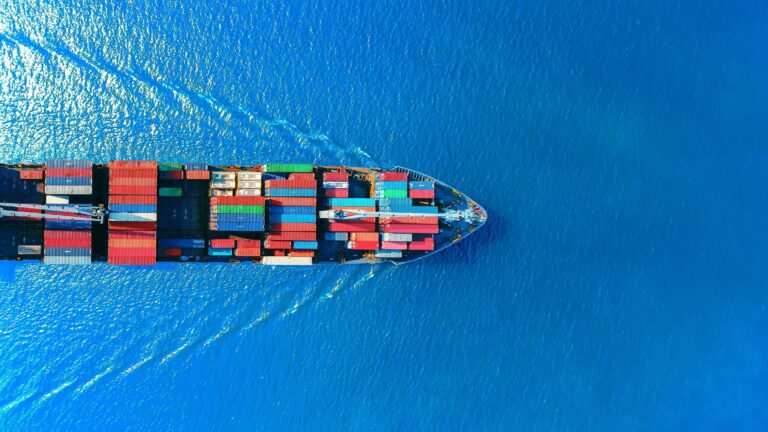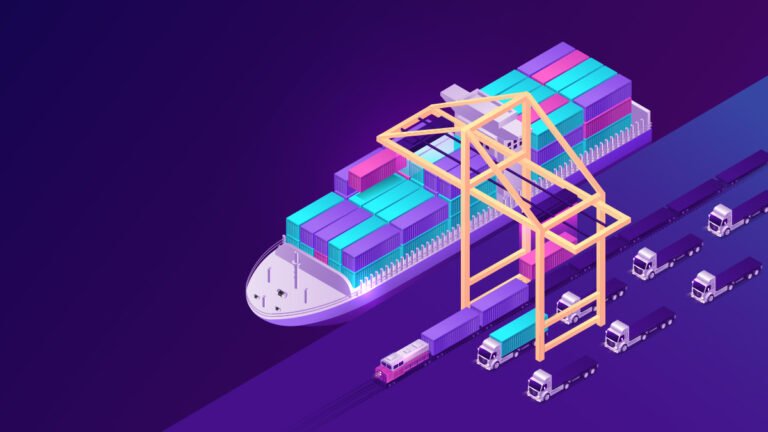The Impact of Political Changes in the UK and France on the Global Supply Chain in 2025
In 2025, Europe experienced significant political shifts, particularly in the United Kingdom and France. These changes have influenced global supply chain dynamics through alterations in trade policies, regulatory environments, and economic partnerships. This article examines these impacts, highlighting the challenges and opportunities that have emerged.
France
The new French government under Gabriel Attal has encountered several significant challenges that impact the global supply chain and trade. These issues include political instability, economic policy shifts, and stringent environmental regulations.
1. Political Instability
- Hung Parliament: The legislative election in June 2024 resulted in a hung parliament, leading to a lack of clear majority and difficulties in passing legislation. This political gridlock can create uncertainty for businesses and investors, impacting economic stability and planning.
- Impact on Trade: Political instability can lead to delays in policy implementation and unpredictability in trade regulations, affecting international business agreements and supply chain operations.
2. Economic Policy Shifts
- Protectionist Measures: Despite a progressive stance, some factions within the government advocate for protectionist measures to safeguard domestic industries. This includes potential tariffs and restrictions on certain imports to protect local businesses from foreign competition.
- Impact on Global Supply Chain: Protectionist policies can lead to increased costs for imported goods, disruptions in supply chains reliant on international components, and retaliatory measures from trade partners. This can increase prices and reduce the availability of products globally.
3. Stringent Environmental Regulations
- Green Policies: The government has introduced ambitious environmental regulations aimed at reducing carbon emissions and promoting sustainability. These include strict emission targets, mandatory use of renewable energy, and regulations on waste management.
- Impact on Trade: Compliance with these regulations requires significant changes in manufacturing and logistics processes. Companies may face increased operational costs due to the need for new technologies and practices. Additionally, supply chains must adapt to meet these environmental standards, potentially leading to delays and increased costs.
United Kingdom
The Labour Party’s victory in the July 2024 general election brought significant changes to the UK’s political and economic landscape. Led by Prime Minister Keir Starmer, the new government has faced several challenges that impact the global supply chain and trade, including protectionist trade policies, increased regulatory scrutiny, and ambitious social reforms.
1. Protectionist Trade Policies
- Revamping Trade Agreements: The Labour government has renegotiated several trade agreements to prioritize local businesses and industries. This includes imposing higher tariffs on certain imported goods to protect domestic manufacturers.
- Impact on Global Supply Chain: Protectionist policies can lead to increased costs for businesses reliant on foreign components. Companies may need to find alternative suppliers or relocate parts of their operations to countries with more favorable trade terms, leading to disruptions in established supply chains.
2. Increased Regulatory Scrutiny
- Stricter Regulations: The new government has introduced more stringent regulations on product standards, labor practices, and environmental compliance. This move aims to improve product quality and worker conditions but increases compliance costs for businesses.
- Impact on Trade: Increased regulatory scrutiny can lead to longer approval processes and higher costs for businesses operating in or exporting to the UK. Companies must invest in new technologies and processes to meet these standards, potentially delaying production and shipment schedules.
3. Ambitious Social Reforms
- Social Spending and Infrastructure Investments: The Labour government has committed to significant investments in social programs and infrastructure. This includes upgrading transportation networks, enhancing digital infrastructure, and improving public services.
- Impact on Supply Chain Efficiency: While infrastructure investments can improve long-term supply chain efficiency, the short-term impact may include disruptions during construction and implementation phases. Businesses need to adapt to these changes to maintain operational continuity.
Specific Impacts on Global Supply Chain and Trade
Supply Chain Diversification
- Risk Mitigation: Companies are diversifying their supply chains to mitigate risks associated with political and regulatory changes. This involves developing a more distributed network of suppliers to ensure continuity and resilience.
- Increased Costs and Lead Times: New tariffs and regulatory requirements in both the UK and France have increased the cost of imported goods and extended lead times. Businesses are adapting by seeking alternative suppliers or relocating operations, leading to increased logistics costs.
Trade Relations
- Trade Disputes: Protectionist measures in both countries can lead to trade disputes and retaliatory tariffs from other countries. For example, higher tariffs on EU imports could result in similar measures against UK and French exports, reducing market access for businesses in both nations.
- Market Shifts: Businesses may shift their focus to non-traditional markets or establish new trade routes to avoid high tariffs and comply with new regulations, impacting global trade patterns.
Innovation and Sustainability
- Drive for Innovation: The need to meet stricter regulations and adapt to protectionist policies drives innovation in supply chain management. Companies in both countries are developing new technologies and practices to enhance efficiency and compliance.
- Sustainability Focus: Increased regulatory scrutiny on environmental standards encourages businesses to adopt sustainable practices. This includes investing in green technologies and processes, which can improve brand reputation and meet consumer demand for eco-friendly products.
The political shifts in the UK and France in 2024 have significantly reshaped the global supply chain landscape, with a notable move towards protectionist policies. In France, political instability and stringent environmental regulations are creating challenges, while in the UK, the Labour government’s protectionist trade policies and increased regulatory scrutiny are driving up costs and causing disruptions. However, these changes also present opportunities for innovation and sustainability.
Businesses must navigate these changes strategically, leveraging technology and diversifying their supply chains to remain competitive in a dynamic global market. The interplay between politics and economics in these two key European nations underscores the importance of adaptability and foresight in global supply chain management.
In this environment of uncertainty, GoComet’s supply chain visibility platform can be a critical asset. By providing real-time data, predictive analytics, and multi-modal tracking, GoComet helps businesses mitigate risks, adapt to changing regulations, and optimize operations despite geopolitical disruptions. Leveraging GoComet’s technology ensures that businesses can stay agile, make informed decisions, and capitalize on emerging opportunities in a rapidly evolving supply chain landscape.




